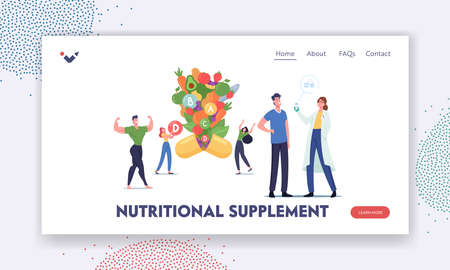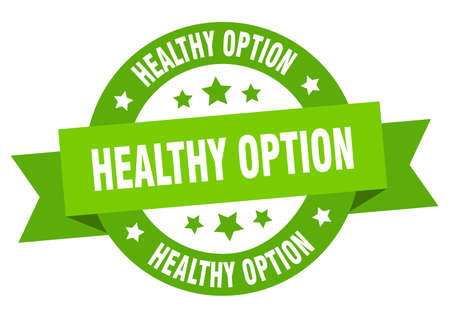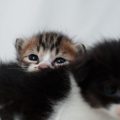Understanding Feline Nutritional Needs
Feeding your beloved cat in the UK is about much more than simply filling their bowl. As responsible pet guardians, it’s essential to appreciate the unique dietary requirements that keep our feline friends healthy and content, especially given the distinct British climate. Cats are obligate carnivores, which means animal-based proteins are at the heart of their nutritional needs. These proteins provide critical amino acids like taurine and arginine—nutrients that cats cannot synthesise on their own.
Essential Nutrients for Cats
| Nutrient | Function | UK-Specific Considerations |
|---|---|---|
| Proteins (Taurine, Arginine) | Muscle growth, immune support, vision, heart health | Fresh meat sources preferred; ensure balanced amino acid profile |
| Fats (Omega-3 & 6) | Energy, skin & coat health, brain function | Cold weather increases energy needs; salmon oil supplements common in the UK |
| Vitamins (A, D, E, B-complex) | Metabolic processes, bone health, antioxidant support | Lack of sunlight can affect Vitamin D synthesis in indoor cats; fortified foods recommended |
| Minerals (Calcium, Phosphorus, Magnesium) | Bone strength, nerve function, metabolic balance | Hard water areas may influence mineral intake; monitor urinary health closely |
The Impact of the British Climate on Feline Diets
Cats living in the UK often face damp winters and variable temperatures. This means they may require additional calories during colder months to maintain body warmth and energy levels. Access to fresh water is crucial year-round due to fluctuating indoor heating and outdoor humidity. Furthermore, British cats who spend time outdoors might need extra nutrients to combat environmental stressors such as rain or chill.
A Balanced Approach for Every Cat
Every cat is unique—age, activity level, and health conditions all play a part in determining their ideal diet. By understanding these core nutritional needs and tailoring food choices to match both your cat’s lifestyle and our distinctive British environment, you’ll be setting the foundation for many happy and healthy years together.
2. Choosing the Best Cat Food in Britain
Feeding your cat well is an act of love and responsibility, and British cat owners are fortunate to have a diverse array of pet foods available on their local high streets and supermarket shelves. Understanding the key differences between wet, dry, and raw cat food options can help you make the most compassionate and informed choice for your feline companion.
Wet, Dry, or Raw? The Choices at British Pet Shops
| Type | Benefits | Considerations | Popular UK Brands |
|---|---|---|---|
| Wet Food | High moisture content helps hydration; often more palatable for picky eaters; easy portion control. | Shorter shelf life after opening; can be pricier per serving; may contribute to dental plaque if not balanced with dry food. | Sheba, Felix, Whiskas |
| Dry Food (Kibble) | Convenient to store and serve; promotes dental health by reducing plaque; economical. | Lower water content—ensure fresh water is always available; some cats find it less appealing. | Iams, Go-Cat, Harringtons |
| Raw Food | Mimics natural feline diet; often grain-free and minimally processed; can be tailored for allergies or sensitivities. | Requires careful handling and storage; ensure complete nutrition with supplements; higher cost and preparation time. | Natures Menu, Purrform, Bella & Duke |
Reading UK Pet Food Labels: What Every Caring Owner Should Know
Navigating the fine print on cat food packaging can feel overwhelming, but understanding UK labelling standards empowers you to choose whats truly best for your furry friend. Look for products labelled “complete,” which means they provide all essential nutrients according to FEDIAF guidelines—the gold standard in Europe. Avoid foods with vague ingredient lists like “animal derivatives,” and instead seek out brands that clearly state their protein sources (e.g., “chicken” rather than “meat”). In Britain, additives such as colourants or artificial preservatives are still permitted in some foods, so scrutinise ingredient lists if you prefer a more natural approach.
Sustainability and Ethics: A British Perspective
The UK is home to a growing number of ethical pet food producers championing sustainability—think recyclable packaging or responsibly sourced fish. Supporting these brands is a simple yet powerful way to care for both your cat and the wider community. As you browse the aisles of Sainsburys or chat with staff at your local Pets at Home, remember: every purchase is an opportunity to show kindness and stewardship within our beloved British landscape.

3. Home-Cooked vs Shop-Bought: What’s Best for Your Cat?
When it comes to nourishing your feline friend, many UK cat owners find themselves torn between the charm of home-cooked meals and the convenience of trusted shop-bought brands. Both options have their unique advantages and challenges, and making the right choice is crucial for your cat’s lifelong health and happiness. Let’s weigh up the pros and cons to help you make an informed decision that aligns with British best practices.
The Pros and Cons at a Glance
| Home-Cooked Meals | Shop-Bought Brands | |
|---|---|---|
| Control Over Ingredients | Full control; can avoid additives and allergens | Limited; must trust manufacturer transparency |
| Nutritional Balance | Challenging without expert guidance; risk of deficiencies | Formulated for balanced nutrition as per UK standards |
| Time & Effort | Time-consuming; requires meal planning and preparation | Convenient; ready-to-serve with clear feeding guidelines |
| Cost Effectiveness | Potentially higher costs for quality ingredients | Range of price points to suit most budgets |
| Sustainability | Easier to source local, ethical produce if desired | Many UK brands now offer eco-friendly packaging and sourcing |
Nutritional Considerations for British Cats
Cats have specific dietary requirements, including taurine, arachidonic acid, and vitamin A—nutrients often lacking in home-prepared meals unless carefully supplemented. In the UK, reputable pet food brands are regulated by the PFMA (Pet Food Manufacturers Association), ensuring that products meet stringent nutritional standards. This gives peace of mind to those who opt for shop-bought foods, especially when choosing brands with transparent ingredient sourcing and ethical commitments.
When Might Home Cooking Be Appropriate?
If your cat has special dietary needs or allergies not addressed by commercial diets, home cooking under veterinary supervision can be beneficial. It can also foster a deeper bond as you tailor meals with love and care. However, always consult a vet or feline nutritionist before making such a transition to prevent inadvertent harm.
The British Perspective: Convenience Meets Care
In busy British households, convenience often wins out, but this needn’t mean compromising on quality. Many high-street retailers and local pet shops stock premium UK-made options that cater to a variety of tastes and life stages. Ultimately, whether you choose to cook at home or rely on trusted brands, the key lies in prioritising your cat’s long-term well-being—a value at the heart of responsible British pet ownership.
4. Common Dietary Mistakes and How to Avoid Them
Feeding your feline friend in the UK comes with its own set of challenges, often shaped by our well-meaning intentions and a uniquely British approach to pet care. However, even the most devoted cat guardians can make nutritional missteps that may impact their cat’s health and wellbeing. Here, we identify some of the most common dietary errors seen across British households—and offer practical, compassionate guidance to help you steer clear of them.
Overfeeding: The Hidden Dangers
One of the most frequent mistakes is overfeeding. It’s tempting to indulge your cat with extra portions or treats, especially when they give you that unmistakable “hungry” stare. In the UK, where pampering pets is almost a national pastime, obesity among cats is on the rise, leading to issues such as diabetes and joint problems.
| Feeding Habit | Potential Issue | Better Practice |
|---|---|---|
| Free-feeding (leaving food out all day) | Encourages overeating and obesity | Establish regular mealtimes with measured portions |
| Treats on demand | Unbalanced diet and excess calories | Reserve treats for training; choose low-calorie options |
Offering Inappropriate Human Foods
The tradition of sharing food at home is strong in many British families. Unfortunately, some popular human foods—like chocolate biscuits or Sunday roast trimmings—can be harmful or even toxic to cats. Below are examples of foods commonly found in British kitchens that should be kept away from your feline companion:
| Human Food | Reason to Avoid | Safe Alternative |
|---|---|---|
| Chocolate & Sweets | Toxic ingredients such as theobromine | Commercial cat treats formulated for feline health |
| Dairy products (milk, cheese) | Most adult cats are lactose intolerant | Lactose-free cat milk available at UK pet shops |
| Cooked bones (from roast dinners) | Bones can splinter and cause injury or choking | Specially made dental chews for cats |
| Onions & Garlic (found in gravy or stuffing) | Toxic to cats, can damage red blood cells | Avoid altogether—stick to plain cooked meats if sharing scraps (in moderation) |
Neglecting Hydration Needs
Cats are notorious for being fussy drinkers, yet adequate hydration is vital for urinary tract health—a particular concern among British Shorthairs and other popular breeds. Relying solely on dry kibble without encouraging water intake can be a pitfall.
How to Encourage Drinking:
- Provide multiple water bowls around the house—ceramic or glass bowls are often preferred over plastic ones.
- Consider investing in a pet water fountain, which entices cats with moving water.
- Add wet food to your cat’s diet for additional moisture.
Nutritional Imbalance from Homemade Diets
The growing trend towards preparing homemade meals for pets reflects a wider British enthusiasm for natural and locally-sourced foods. However, without veterinary guidance, homemade diets can lack essential nutrients like taurine, calcium, or vitamins crucial for feline health.
If considering a homemade diet:
- Always consult a UK-registered veterinary nutritionist.
- Avoid substituting dog food or unbalanced recipes found online.
- Regularly review your cats condition and adapt as needed with professional support.
By being mindful of these common pitfalls and embracing safe, evidence-based feeding practices rooted in British best practices, you can ensure your beloved cat enjoys both good health and the happiness that comes from being truly cared for.
5. Caring for Cats with Special Diets
For many British cat owners, discovering that your feline companion requires a special diet due to allergies, sensitivities, or health conditions can feel overwhelming. However, with the right guidance and local resources, you can ensure your cat thrives on a tailored nutritional plan. Below, we offer practical advice grounded in UK veterinary recommendations and highlight where to find trusted support.
Understanding Food Allergies and Sensitivities
Cats may develop adverse reactions to common ingredients such as beef, fish, dairy, or grains. Typical symptoms include itching, digestive upset, or chronic ear infections. If you suspect your cat has a food intolerance or allergy, consult your local vet before making dietary changes. Many UK vets recommend an elimination diet—gradually introducing novel proteins and carbohydrates to identify triggers.
Common Allergenic Ingredients & Alternatives
| Allergen | Alternative Options |
|---|---|
| Beef | Lamb, Rabbit, Duck |
| Fish | Poultry (Chicken/Turkey) |
| Dairy | Lactose-free Cat Milk |
| Grains (Wheat/Corn) | Grain-free Cat Food Brands |
Catering for Chronic Conditions: Diabetes and Kidney Disease
The UK is home to many high-quality prescription diets specifically formulated for chronic illnesses. For diabetic cats, your vet might recommend foods low in carbohydrates and high in protein. Cats with kidney disease often benefit from diets lower in phosphorus and specially adjusted protein levels. Its essential to purchase these foods from reputable sources—ask your vet about trusted UK brands or order directly through their practice.
Managing Special Diets: Local Support and Resources
- Nutritional Clinics: Many veterinary practices across England, Scotland, Wales, and Northern Ireland offer nutrition consultations.
- Pet Food Banks: Several UK charities run pet food banks—an invaluable resource if financial hardship makes specialist diets difficult to afford.
- Label Reading: Familiarise yourself with UK pet food labelling standards; look for products approved by the Pet Food Manufacturers’ Association (PFMA).
- Online Communities: British cat owner forums (such as those on Cats Protection’s website) provide peer support and shared experiences regarding special diets.
A Compassionate Approach to Feline Health
Caring for a cat with unique dietary needs requires patience and commitment but also brings an opportunity to deepen your bond. By working closely with your vet and tapping into supportive UK-based resources, you’re ensuring your beloved companion receives the nourishment and care they deserve—no matter their health challenges.
6. Sustainable and Ethical Feeding in the UK
As responsible cat guardians in the UK, making sustainable and ethical choices for our feline friends goes hand-in-hand with our commitment to animal welfare and environmental stewardship. By considering eco-friendly options, prioritising British-sourced ingredients, and supporting ethical brands, you can make a meaningful difference—one meal at a time.
Eco-Friendly Choices for Cat Food
The UK is leading the way in environmentally conscious pet care. Look out for cat food brands that use recyclable packaging, support carbon-neutral initiatives, or offer plant-based alternatives where appropriate. Reducing waste by buying in bulk or choosing reusable containers is another simple step towards a greener future.
British-Sourced Ingredients: Supporting Local Producers
Choosing cat food made from locally sourced British ingredients not only supports local farmers but also reduces your pet’s carbon pawprint. Many reputable UK brands clearly label their sourcing practices, helping you make informed decisions. Below is a quick comparison of common ingredient origins:
| Ingredient | British-Sourced? | Environmental Impact |
|---|---|---|
| Free-range Chicken | Yes (look for Red Tractor label) | Lower transport emissions, supports welfare standards |
| Lamb | Often Yes (Welsh/Scottish farms) | Sustainable grazing if locally sourced |
| Fish | Varies (look for MSC-certified UK fisheries) | Overfishing risk if not sustainably managed |
| Poultry By-products | Yes (check for transparency) | Reduces waste, but check quality and ethics |
Making Compassionate Choices Every Day
Your everyday choices have ripple effects far beyond your home. Opting for brands that give back to animal charities, use ethically raised meat, or donate unsold products to shelters reflects compassion at every level. Seek out certifications like RSPCA Assured or Soil Association Organic as markers of higher welfare and sustainability standards.
A Community Effort: Share and Inspire Change
The journey towards sustainable feeding is ongoing—and best shared. Connect with fellow UK cat owners through local groups or online forums to swap tips on ethical brands and homemade meal ideas. By leading through example, we inspire others to join us in caring for both our cats and our world.

